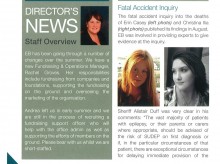Hidden epilepsy deaths – time to sit up and listen in order to save lives
 This week UK media has picked up on a recently published article from the US about ‘Recognising and preventing epilepsy-related mortality’ (Devinsky et al, 2015). And there have been headlines highlighting the need for urgent interventions in order to reduce the number of potentially avoidable epilepsy deaths each year in the UK.
This week UK media has picked up on a recently published article from the US about ‘Recognising and preventing epilepsy-related mortality’ (Devinsky et al, 2015). And there have been headlines highlighting the need for urgent interventions in order to reduce the number of potentially avoidable epilepsy deaths each year in the UK.
This information is nothing new. Epilepsy claims around 1,200 lives in the UK every year, at least 600 of these through Sudden Unexpected Death in Epilepsy (SUDEP), however, this number is likely to be under-reported. Research shows that about 42% of these deaths may be preventable through better management of known risk factors. There are around 600,000 people with epilepsy in the UK. About 87 people are diagnosed with the condition every day. Epilepsy carries a risk of death of about two to three times higher than the general population. In the UK it is the fifth highest contributor to premature death in men, and eighth in women, and it is most common in young adults.
The issues facing people with epilepsy and around reporting of epilepsy deaths is nothing new. SUDEP Action has been working towards prevention of SUDEP and other Epilepsy-related deaths for over 20 years. We have been supporting those bereaved by epilepsy for the last 20 years and know the issues facing those with epilepsy and their health professionals in managing the condition to help keep them safe.
We have fought for two decades to raise awareness both across the UK and internationally of how epilepsy deaths are misreported and how many of which could be prevented. We know how desperately our bereaved families wish they had been made fully aware of the risks linked to epilepsy, so they could have taken steps which may have helped keep their loved one safe. This is why we set up The Epilepsy Deaths Register in 2013, to capture this vital information of the number of people losing their lives to epilepsy. We have had over 400 registrations so far, and further registrations could help create a clearer picture of epilepsy related deaths.
While this makes for stark and worrying reading, particularly if you or someone you know has epilepsy; it is reassuring to know that there are things that can be done, both by health professionals and people with epilepsy which can help them keep an eye on their epilepsy, potential risks and overall wellbeing and provide peace of mind that they are monitoring and managing these.
Our work with researchers in the UK has resulted in SUDEP and epilepsy risk reduction tools such as the world first Epilepsy Self Monitor EpSMon and the SUDEP and Seizure Safety Checklist.
The Checklist is a tool developed for use by health professionals in clinic to help them and their patients work together to reduce health risks. It uses the latest research into known risks for epilepsy deaths and SUDEP to prompt doctors or nurses to discuss epilepsy risks and overall wellbeing with their patients. They can take positive steps to reduce their risks.
EpSMon, is a digital version of the Checklist developed for use by people with epilepsy in between medical appointments. EpSMon helps people monitor their own epilepsy by bringing life-saving knowledge to their fingertips which can be fed back to their doctor; helping professionals and patients work together to manage the condition.
Jane Hanna, Chief Executive for SUDEP Action who lost her partner to SUDEP said: “Most people with epilepsy will live long and healthy lives, but we feel it is important that those who are at risk, however small that risk may be, are given the opportunity to make the right lifestyle choices. They can only do this if they have an open and honest conversation with their health care provider. There are positive steps that can be taken to reduce risk and it can be empowering for people to be involved in managing what is known to be a difficult condition”.
“If you have epilepsy, there are things you can do to reduce your risk of SUDEP, such as taking your medication regularly and reliably and making sure you have regular reviews. Not everyone with epilepsy is at risk, it is important you discuss your risk with your health professionals.”
EpSMon was created by a team of partners based at Plymouth University; Cornwall Foundation NHS Trust; Royal Cornwall Hospital and SUDEP Action. EpSMon is a digital version of the SUDEP and Seizure Safety Checklist. The Checklist Project was part sponsored by SUDEP Action helped by Kt’s Fund, a community fund set up in memory of Katie Hallet, a 20-year children’s nursing student who died from SUDEP in January 2006.
EpSMon will be available to everyone in the Spring and people can register now at www.epsmon.com
Health professionals interested in finding out more about the SUDEP and Seizure Safety Checklist can visit www.sudep.org/checklist
If you have been affected by an epilepsy related death or feel the death of a loved one may have been misreported, please consider providing information to The Epilepsy Deaths Register at www.epilepsydeathsregister.org
See our SUDEP Global Conversation resource at www.sudepglobalconversation.com
For more information on the article: Recognizing and preventing epilepsy-related mortality

